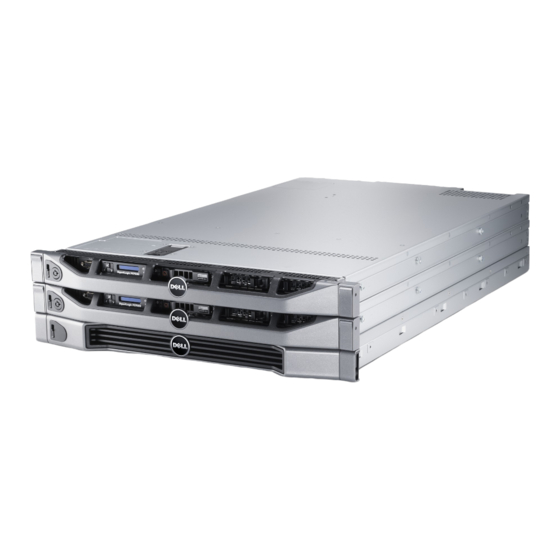Dell FS7500 Техническое руководство - Страница 9
Просмотреть онлайн или скачать pdf Техническое руководство для Хранение Dell FS7500. Dell FS7500 22 страницы. Equallogic best practices series network attached storage
Также для Dell FS7500: Руководство (18 страниц), Обзор (7 страниц), Настройка оборудования (2 страниц)

3 Test topology and architecture
To study the performance impact of integrating a FS7500 into an existing EqualLogic SAN
environment, we needed to generate a workload of both block and file I/O. We chose to use the
open-source I/O workload generation tool Vdbench, which is available for download on
SourceForge.net. Vdbench requires a JAVA runtime environment, so we also installed the Sun (Oracle)
JRE version 6u24 on each client.
For clients, we configured four VMware® ESX 4.1 servers. Two of the servers were connected to the
back-end SAN switches (and to SAN storage), while the other two were connected to the front-end
LAN switches. On each ESX server, we created 8 Virtual Machines (VMs) that ran 64-bit Red Hat®
Enterprise Linux® (RHEL) version 5.6. Each VM had 512MB RAM and 4 virtual CPUs. This gave us 16
clients for block testing and 16 clients for file tests.
Figure 1: Test topology diagram
Our ESX servers consisted of two Dell PowerEdge R610 servers and two Dell PowerEdge R710 servers.
Each had 48GB of RAM and two quad-core processors. We used the onboard 1 Gigabit network ports
for management connectivity, and each server also had a pair of dual-port 10 Gigabit network cards.
Our LAN and SAN switches each consisted of a pair of Dell™ PowerConnect™ 6248 switches with
stacking modules. For our tests, these switches also contained a pair of 10 Gigabit uplink ports. We
connected the 10 Gigabit ports in the ESX servers to their respective switches through these uplink
BP1016
5
Integrating the Dell EqualLogic FS7500 into an Existing SAN
